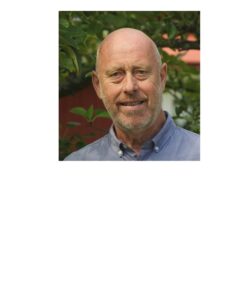FRANCOISE DAVONE, HEATHER FERGUSON, STEVEN KNOBLAUCH, HENRY MARKMAN
How Are Trauma and Dissociation Embodied?
with Moderators DORIS BROTHERS AND JON SLETVOLD
Francoise Davoine, PhD,
Heather Ferguson, LCSW,
Stephen Knoblauch, PhD,
Henry Markman, MD
with Moderators Doris Brothers, PhD, and Jon Sletvold, PsyD
How Are Trauma and Dissociation Embodied?
February 24th, 2024 from 12 Noon to 2:00PM/Eastern time
A multi-view discussion followed by audience interaction. Presented in collaboration with The Wilhelm Reich Center for the Study of Embodiment.
2 CONTINUING EDUCATION CREDITS ARE AVAILABLE. For CE credit information, click here.
ABOUT THIS EVENT
Although it is widely acknowledged that trauma and dissociation profoundly affect our bodies, answers to questions about just how this happens vary greatly. A clinician’s understanding of the effects of trauma and dissociation on the body has important implications for the healing process.
This event brings together several clinicians who hold a variety of views on the subject. The four speakers will answer questions posed by our two Moderators, who are also Co-Directors of the Wilhelm Reich Center for the Study of Embodiment. After engaging in dialogue together, members of our online audience will be invited to join the discussion.
ABOUT THE WILHELM REICH CENTER FOR THE STUDY OF EMBODIMENT
Inspired by the pioneering work of Wilhelm Reich and encouraged by the recent surge of interest in embodiment among clinicians, co-Directors Drs. Doris Brothers and Jon Sletvold have founded the Center. With it, they are introducing an online forum for dialogues about the ways in which embodiment affects the theory and practice of psychoanalysis and psychotherapy.
A wide range of approaches to embodiment have emerged in the last two decades that have led them to believe that a “turn toward embodiment” is underway. In the interest of furthering this turn they are offering a format that differs from the usual at psychoanalytic meetings. Rather than featuring a paper presenting a specific theorist or clinician followed by discussions, they intend that each event will center around a specific topic. Speakers from around the world, each of whom employs a different perspective on embodiment, will be invited to participate in a roundtable conversation of the topic. Afterward, online participants will be encouraged to join the conversation.
Learn more about The Wilhelm Reich Center for the Study of Embodiment
ABOUT THE SPEAKERS
Françoise Davoine, PhD, has completed studies in classical literature. She has a PhD in sociology and is a professor of sociology at the Ecole des Hautes Etudes en Sciences Sociales, where, for 40 years, she has lead a weekly seminar with Jean Max Gaudillière entitled, Madness and the Social Link. She has been a psychoanalyst in a public psychiatric hospital, and also has provided outside consultations and kept a Paris-based private practice for 30 years. Dr. Davoine was a member of Lacan’s “Ecole Freudienne” until Lacan’s death in 1981. She is a member of ISPS founded in 1954 by Gaetano Benedetti; and is an Erikson Scholar in the Erikson Institute at the Austen Riggs Center. Among her books is History beyond Trauma (Other Press with Max Gaudillière). Additionally, she has published many with Routledge, including Mother Folly, Fighting Melancholy: Don Quixote’s teaching; A Word to the Wise (on Don Quixote’s second book); Jean Max Gaudillière’s Seminars (2 volumes); Pandemics, Wars, Traumas and Literature; Shandean Psychoanalysis: Tristram Shandy, Madness and Trauma; and Wittgenstein’s Folly.
Heather Ferguson, LCSW, is faculty and supervisor at the Institute for the Psychoanalytic Study of Subjectivity, the National Institute for the Psychotherapies, and is on the faculty at the Manhattan Institute for Psychoanalysis – Certificate in Trauma Studies, all in New York City. As a certified hypnotherapist and practitioner of EMDR, she integrates embodied techniques into her psychoanalytic practice. She writes and lectures about eating disorder treatment, the role of intergenerational transmission of trauma, and the use of an embodied focus in order to deepen psychotherapeutic engagement. She has authored chapters in Ghosts in the Consulting Room: Echoes of Trauma in Psychoanalysis (Eds, Harris, Kalb, and Klebanoff) and Art, Creativity, and Psychoanalysis: Perspectives from Analyst-Artists, (Ed., Hagman). She is Co-Book Review Editor for Psychoanalysis, Self, and Context and a member of the Music Industry Therapist Collective (MITC). She maintains a private practice in New York City.
Steven H. Knoblauch, PhD, is Clinical Adjunct Associate Professor at the New York University Postdoctoral Program in Psychotherapy and Psychoanalysis where he is a Clinical Consultant. He is also faculty and supervisor at The Institute for the Psychoanalytic Study of Subjectivity in New York City. He is author of The Musical Edge of Therapeutic Dialogue (2000), Bodies and Social Rhythms: Navigating Unconscious Vulnerability and Emotional Fluidity (2021), and coauthor with Beebe, Rustin and Sorter of Forms of Intersubjectivity in Infant Research and Adult Treatment (2005). He often uses his cross-cultural experiences as a musician studying and playing jazz, Brazilian music, rock and blues in the US and abroad, with attention to rhythms and prosody, shaping social interactions to inform his clinical teaching, supervision and practice.
Henry Markman, MD, is a Training & Supervising Analyst and Co-chair of Dialogues in Contemporary Psychoanalysis at San Francisco Center for Psychoanalysis. He is on the editorial board of The Journal of the American Psychoanalytic Association . In 2021 he published the book, Creative Engagement in Psychoanalytic Practice (Routledge). Recent publications include: A Pragmatic Approach to Bion’s Late Work (JAPA 2015); Presence, Mourning, Beauty: Elements of Analytic Process (JAPA 2017); The Good, the Bad, The Ugly, and the Dead: A Typology of Analytic Fields (fort da 2018); Accompaniment in Jazz and Psychoanalysis (Psychoanalytic Dialogues 2020); Embodied Attunement and Participation (JAPA 2020); and One sided analysis is no longer possible: the relevance of “mutual analysis” in our current world (fort da 2021). He has appeared on the IPA podcast, Off the Couch, entitled An Analyst’s Journey to Authenticity and Presence, and the podcast New Books in Psychoanalysis.
Dr. Markman’s interests include modes of therapeutic action, embodied communication and the relevance of music in psychoanalysis, aesthetic experience, the emotional work of the analyst in the clinical encounter, and the emotional developmental of a therapist. He is currently working on a manuscript entitled Five Un-easy Pieces: five psychoanalytic articles that changed my mind, and a manuscript for beginning therapists, entitled Being an analytic therapist: conversations with therapists starting out. His clinical work and writing draws from Bion, Ferenczi, Balint, Winnicott, the American Relational Group, and Latin American field and link theorists. He is in private practice in Berkeley, where he consults and leads study groups.
ABOUT THE MODERATORS/CO-DIRECTORS OF THE WILHELM REICH CENTER FOR THE STUDY OF EMBODIMENT
 Doris Brothers, PhD, is a co-founder and faculty member of the Training and Research in Intersubjective Self Psychology Foundation (TRISP). She was co-editor with Roger Frie of Psychoanalysis, Self and Context from 2015-2019 and is an associate editor of Psychoanalytic Inquiry. She serves on the council of the International Association of Psychoanalytic Self Psychology (IAPSP). Doris has published many journal articles and book chapters as well as four books. Her latest book, written with Jon Sletvold is entitled A New Vision of Psychoanalytic Theory, Practice and Supervision: TALKING BODIES. Her earlier books are: Toward a Psychology of Uncertainty: Trauma-Centered Psychoanalysis (2008), Falling Backwards: An Exploration of Trust and Self-Experience (1995), and with Richard Ulman, The Shattered Self: A Psychoanalytic Study of Trauma (1988). She has presented her work internationally and leads supervision/study groups with Jon Sletvold. She sees patients in private practice in New York and Oslo.
Doris Brothers, PhD, is a co-founder and faculty member of the Training and Research in Intersubjective Self Psychology Foundation (TRISP). She was co-editor with Roger Frie of Psychoanalysis, Self and Context from 2015-2019 and is an associate editor of Psychoanalytic Inquiry. She serves on the council of the International Association of Psychoanalytic Self Psychology (IAPSP). Doris has published many journal articles and book chapters as well as four books. Her latest book, written with Jon Sletvold is entitled A New Vision of Psychoanalytic Theory, Practice and Supervision: TALKING BODIES. Her earlier books are: Toward a Psychology of Uncertainty: Trauma-Centered Psychoanalysis (2008), Falling Backwards: An Exploration of Trust and Self-Experience (1995), and with Richard Ulman, The Shattered Self: A Psychoanalytic Study of Trauma (1988). She has presented her work internationally and leads supervision/study groups with Jon Sletvold. She sees patients in private practice in New York and Oslo.
 Jon Sletvold, PsyD, is founding board director and faculty member of the Norwegian Character Analytic Institute. He has written articles and book chapters on embodiment in psychoanalytic theory, practice, and training. He is the editor of four books and the author of The Embodied Analyst: From Freud and Reich to Relationality, which won the Gradiva Award in 2015. In 2019 he wrote From Muscular Armor to Bodies in Dialogue with Per Harbitz. His latest book, written with Doris Brothers is A New Vision of Psychoanalytic Theory, Practice and Supervision: TALKING BODIES. Dr. Sletvold has presented his work internationally and co-leads online supervision/study groups on embodiment in Europe, North America and China with Doris Brothers. He practices in Oslo and New York.
Jon Sletvold, PsyD, is founding board director and faculty member of the Norwegian Character Analytic Institute. He has written articles and book chapters on embodiment in psychoanalytic theory, practice, and training. He is the editor of four books and the author of The Embodied Analyst: From Freud and Reich to Relationality, which won the Gradiva Award in 2015. In 2019 he wrote From Muscular Armor to Bodies in Dialogue with Per Harbitz. His latest book, written with Doris Brothers is A New Vision of Psychoanalytic Theory, Practice and Supervision: TALKING BODIES. Dr. Sletvold has presented his work internationally and co-leads online supervision/study groups on embodiment in Europe, North America and China with Doris Brothers. He practices in Oslo and New York.
William Alanson White Institute of Psychiatry, Psychoanalysis & Psychology 20 West 74th Street, New York, NY 10023 | (212) 873-0725